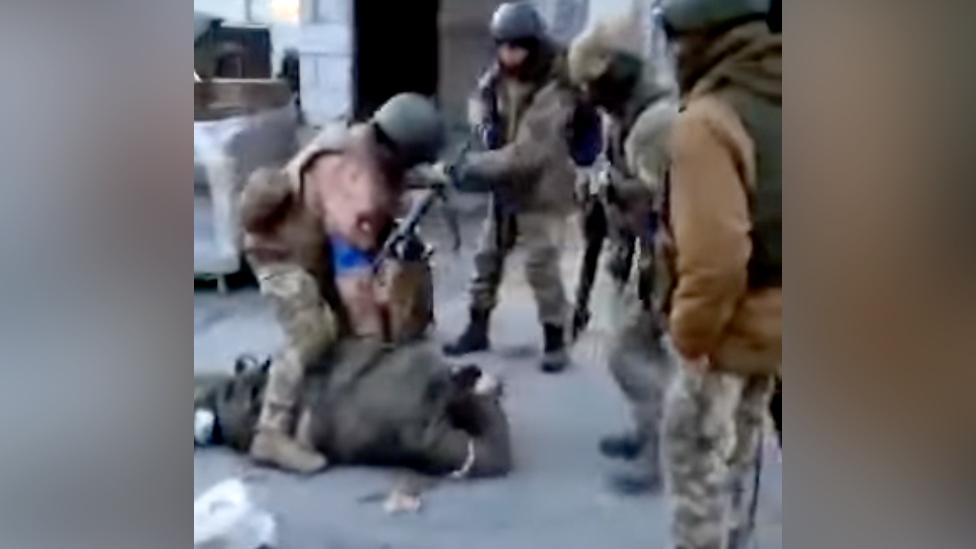Ukraine peace talks: The West calls for actions not words from Russia
- Published
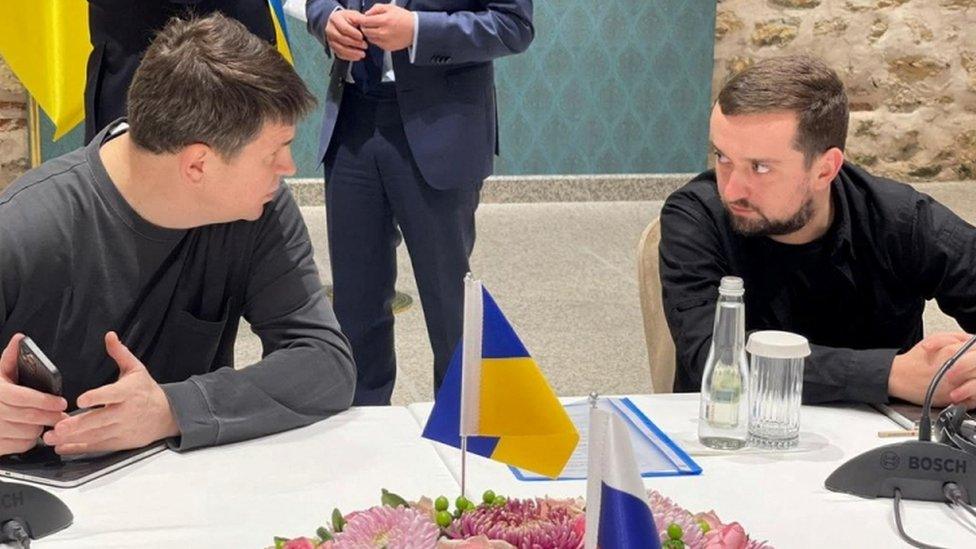
The deputy head of Ukraine's Presidential Office, Kyrylo Tymoshenko, and Ukraine's presidential advisor Mykhailo Podolyak at the talks in Istanbul
Peace talks between Russia and Ukraine have brought the first signs of progress since the Russian invasion began on 24 February. Russia says it will "drastically reduce" military combat operations in two key areas. But as Tom Bateman reports from outside the talks in Turkey, many Western observers remain sceptical.
Turkey's President Recep Tayyip Erdogan hosted this round of Russia-Ukraine talks at his working office in Istanbul. It's an impressive place.
The Dolmabahce Palace dominates a stretch alongside the Bosphorus - the strait across which Europe and Asia meet.
Turkey's leader is signalling how he wants his role to be viewed. The building has seen nearly two centuries of history; the Ottoman Empire was once governed from here. On Tuesday morning it rang out with applause for him from the arriving delegations.
Mr Erdogan invoked their "historic responsibility" to reach a truce as the two negotiating teams faced each other.
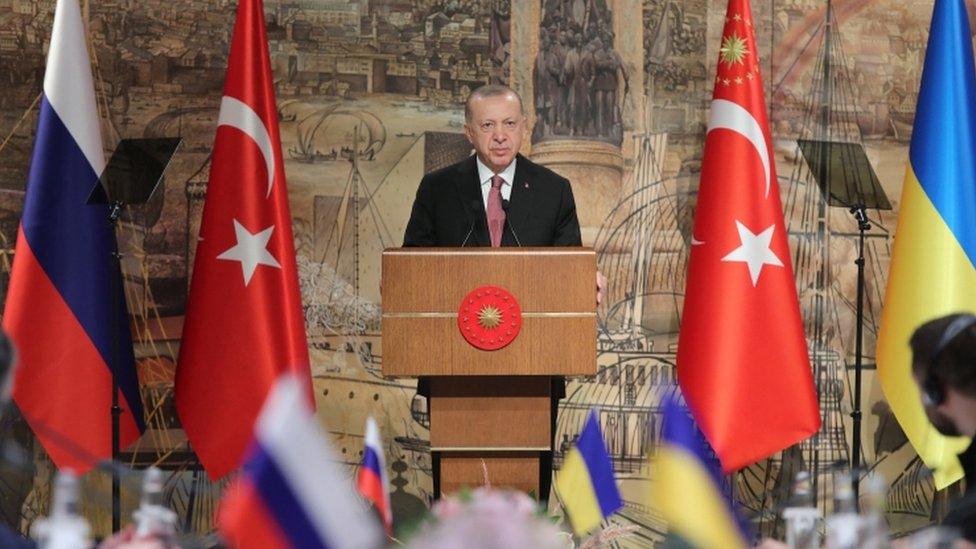
Turkey's President Erdogan invoked the two sides' "historic responsibility" as he hosted the talks
But most here were sceptical. From the delegations there were few pleasantries and even less hope for success. The Ukrainians suggested there would be no breakthrough on the "main issues". Talks in Turkey earlier this month ended in failure and recriminations.
The human cost in Ukraine continues to be devastating. A ferocious attack on an administrative building in Mykolaiv in the south killed at least 12 people on Tuesday with others feared trapped under the rubble, said local officials.
Yet the discussions have delivered a significant moment in diplomatic terms, described as the "most meaningful progress" so far by the Turks.
The discussions lasted around three hours. Very little was leaking. Nearly all media were kept away in a packed area on a pavement outside.
The key points became clear as members of the Ukrainian delegation came out onto the street an hour before the expected finish.
The negotiators said they had proposed to Russia that Ukraine adopt a neutral status in exchange for security guarantees - an international mechanism where guarantor countries would act to protect Ukraine in future.
In return Kyiv would not join Nato, a key Russian demand. This was not a new pledge, but it was spelt out in the clearest detail yet.
And they proposed sidestepping some of the thorniest issues, saying security guarantees would "temporarily exclude" the breakaway territories in the eastern Donbas region. They suggested talks over 15 years to resolve the status of Crimea.
This was sufficient progress for a meeting between the country's presidents, said the lead Ukrainian negotiator David Arakhamia. He said they were sending the proposals to the Russian side and were waiting for an answer.
It came a few minutes later from Russia's Deputy Defence Minister Alexander Fomin. He described the discussions as moving into a "practical phase".
And then came the key phrase. He said Russia had decided to "drastically reduce combat operations in the Kyiv and Chernihiv areas". This was to boost "mutual trust and create the necessary conditions for further negotiations".
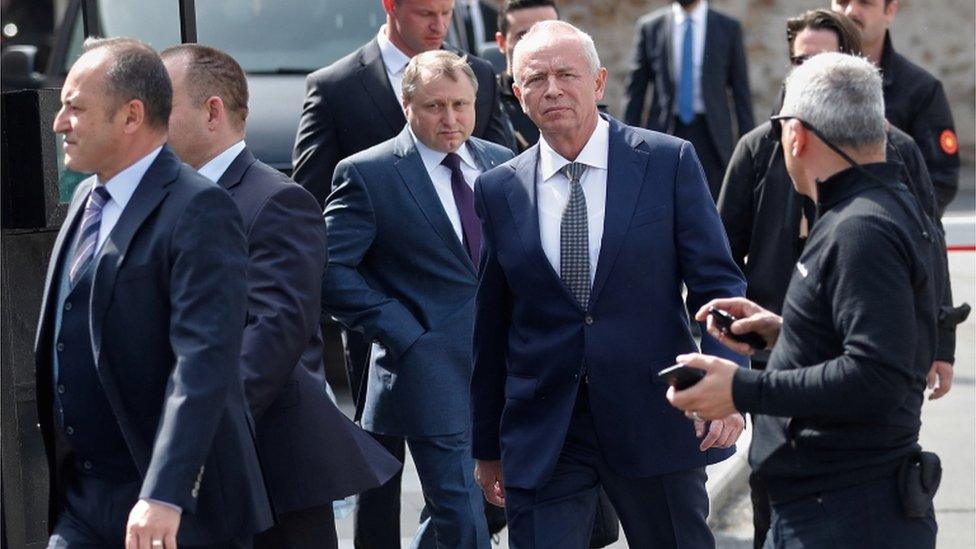
Russia's Deputy Defence Minister Alexander Fomin promised a drastic reduction in combat operations in two key areas
It mattered because it signalled the first sense of momentum to a diplomatic process that has so far lacked any clear outcomes.
Many are sceptical about what Russia's stance actually means; whether it's a pledge to pull back or merely an acceptance it has already failed in those areas and will instead turn its full force further east.
Western countries are saying they will judge Russia by its actions not its words.
This is far from a ceasefire or the end of the conflict, but Ukraine says the talks will go on. It wants to bring in other countries as part of proposals for "security guarantees", while Moscow called the talks "constructive".
What happens on the ground will remain critical.
Meanwhile there'll be a bigger spotlight on Turkey's role. In one aside, the Russian billionaire Roman Abramovich was spotted at a small table away from the main delegations. It seemed to confirm reports the sanctioned Chelsea football club owner is still involved in the mediation at some level.
He was wearing translation headphones and sitting next to Mr Erdogan's spokesman Ibrahim Kalin, who's reported to have been a key fixer in some of the contacts between Russia and Ukraine.
Turkey has resisted joining the West's sanctions against Russia and its oligarchs, leading to growing concerns its crisis-hit economy could be put in further jeopardy.
But Mr Erdogan's metaphor about bridging divides is now delivering him a different focus for his supporters at home.
Related topics
- Published30 March 2022
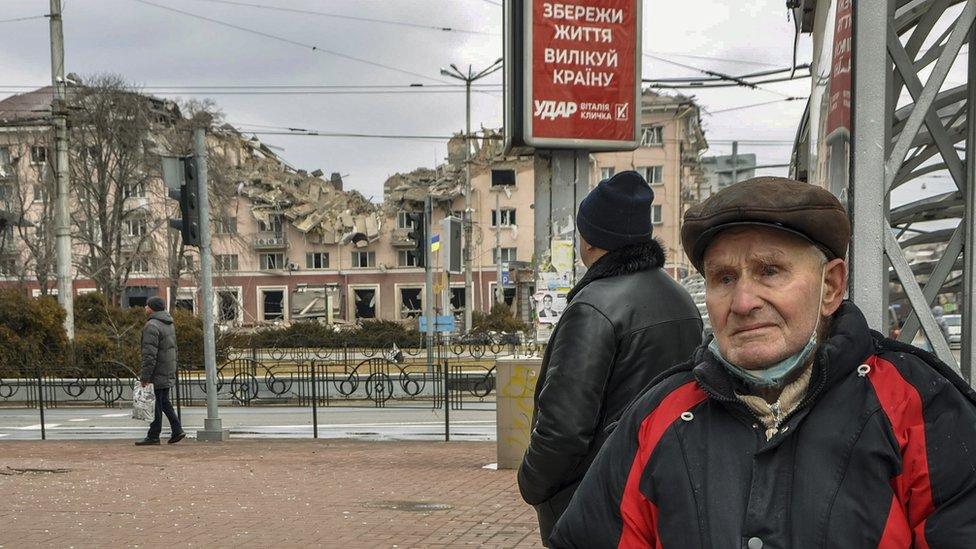
- Published29 March 2022
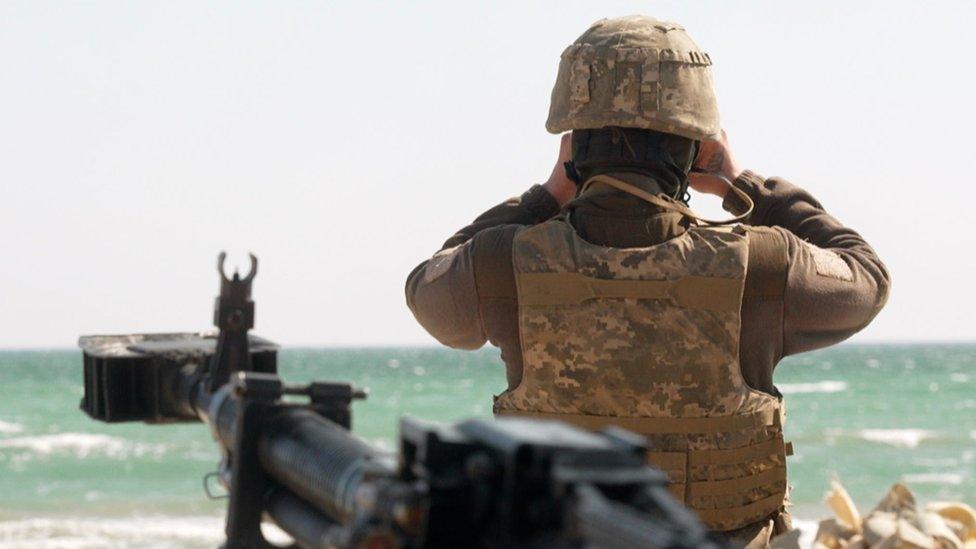
- Published30 March 2022
